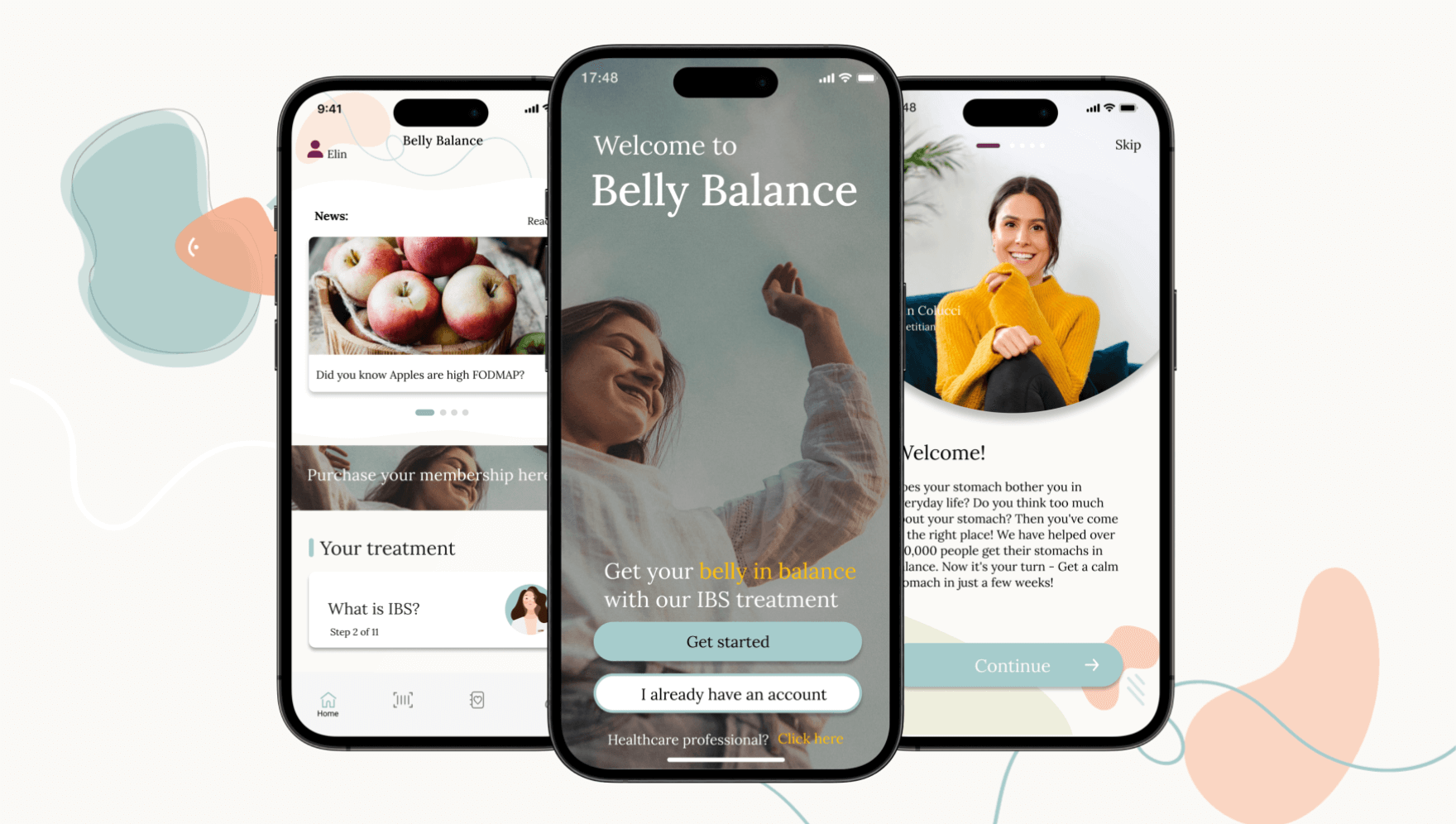
Can children have IBS?
April 5, 2024
Do you have a child who complains of stomach pain or has trouble going to the bathroom? Perhaps school is suffering because of these issues? Vague stomach pain in children is common. Whether it is due to diet or stress, these symptoms should be taken seriously and thoroughly investigated.
There is some caution among doctors in diagnosing IBS in children, partly due to the fear of missing other, potentially dangerous diagnoses. As a result, many children can go through the healthcare system for years without receiving proper help or a diagnosis. However, as long as the standard tests (gluten and lactose) have been conducted, it is fine to try the FODMAP diet.
Can children have IBS?
The answer is yes. We meet children as young as around five years old who have IBS-like symptoms and have been fully examined within the healthcare system, with or without an IBS diagnosis. Sometimes, parents have similar problems and have realized that their issues have been passed down. It’s estimated that IBS has about a 30% hereditary factor. It’s not uncommon for parents to feel stressed after being told that their child’s symptoms are caused by stress. And that could be true.
Today, we live in a world where pressure and demands come at an earlier stage in school, which can affect digestion. However, our experience is that it is possible to treat IBS in children, starting with a focus on diet. It’s also not unusual for infants who have been examined for milk protein allergy, colic, or other illnesses to continue having issues with gas, bloating, and an upset stomach. In such cases, it may be worth trying a dietary treatment for the mother, as many of the substances that irritate the stomach can pass into breast milk, such as fibers from onion and garlic.
FODMAP-treatment on children
For the FODMAP diet to work smoothly for children, it usually requires the involvement of both parents and the school/daycare. It’s possible to implement the diet by focusing only on meals at home, but for the best results, it’s helpful if the food throughout the day can also be adapted as much as possible, at least when it comes to the main culprits like onion, garlic, and grains.
Some schools or daycare centers may require a note from a doctor or dietitian, while others are willing to help adjust the diet anyway. It can be as simple as avoiding bread and choosing a banana instead of an apple or pear during snack time, to reduce the intake of irritating substances enough to calm the stomach.
Once the stomach is under control through diet, some parents choose to introduce complementary practices like breathing exercises. These tend to have a further positive effect and provide useful tools for life.
If you have a child with digestive symptoms, it’s essential to first undergo a thorough examination by a doctor. After that, it’s important to follow the FODMAP diet with a dietitian who is well-versed in the method. Reintroducing foods is especially important for children, and the elimination phase of the FODMAP diet is meant only for a short period rather than a lifelong treatment. Monitoring growth during the treatment is also crucial.
Belly Balance digital treatment
Sofia Antonsson
Reg. Dietitian, Belly Balance
Read more about

IBS - What is it?
Bloated , constipated or having a gassy stomach? IBS or Irritable Bowel Syndrome is a functional gastrointestinal disorder, meaning no physical issues can be found in the stomach or intestines; they just don’t function quite as they should.

How the app works
Download the app and become part of our community. We assist you in achieving a calm and happy stomach through treatment and tools available directly in the app.

About FODMAP
By learning which foods upset your stomach, you can make conscious choices and get quick symptom relief. With the low FODMAP diet, you receive structured assistance in understanding which foods your body tolerates better than others. No more guessing and pondering – you get the answer straight away!

